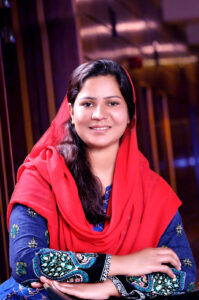Posted on Sister Zeph’s Journal
Authored by Sister Zeph
Date: April 23, 2013
By Zephaniah
Mr. Brigham Young once stated, “You educate a man; you educate a man. You educate a woman; you educate a generation.”
This is a principle we must all comprehend and uphold to enhance our world, as a mother serves as a person’s first teacher. Regrettably, we observe that in impoverished nations, where the education of women is neglected, dire consequences prevail. I hail from Pakistan, and in some regions here, discussing girls’ education remains a challenge. The situation for women is deeply disheartening. They face significant discrimination and restrictions. Their choices are stifled, and they are denied the opportunity to aim high, often unaware of their rights. Consequently, they seek protection from men, assuming that only men can provide security. Women endure lifelong suffering and strive endlessly to keep their families content. For centuries, they have been branded as weak, capable of nothing more than serving as objects of desire and childbearing machines. From childhood, girls are conditioned to aspire to marriage as their sole life goal. Men treat them as they please, and in the name of “honor,” they can even resort to violence. Education provides us with awareness and the courage to assert our rights, securing our own future and that of future generations.
For the past fifteen years, I have been running a free school for girls in my village, exposing me to countless stories of adversity. For instance, Ayesha’s father has beaten her four times in the last four days because she wishes to pursue her education, yet he cannot afford new shoes for her. Anam, at ten years old, is forbidden from reading books or learning to write by her father, who insists she only learn stitching in my school. Bushra’s uncle ostracized her mother for desiring an education for her daughters, causing Bushra to drop out of school. Sarah fears that when she turns fifteen, her brother will force her into marriage, extinguishing her educational aspirations. Shiza’s father violently assaulted her, breaking four of her teeth, all because she was holding a book and attempting to read it when he entered their home. Once, while crossing the road to reach my office, two masked boys intercepted me and issued threats, alleging that they knew what I was doing with “their” girls, as I volunteer to educate them.
The hopeful news is that attitudes are slowly changing, and girls now aspire to receive an education. However, several barriers still need dismantling. Poverty often prevents access to education. Child marriage remains a significant obstacle. Our culture wrongly presumes that educated girls will become arrogant and disobedient, which is why some parents prioritize educating their sons. Girls are often denied employment opportunities, ensuring their economic dependence and perpetuating the idea that women should be subservient to men. The concept that women lack wisdom and should confine themselves to household chores, pleasing their husbands, prevails. Our government must enact and rigorously enforce policies to rectify these issues.
Every educated person should take it upon themselves to educate others. We must enlighten men that women are not their servants but integral parts of their lives. Media plays a crucial role in raising awareness. Population control is imperative, and opportunities for female employment must be created across all fields to showcase their capabilities. I am endeavoring to serve as an example in my community. I have no brothers, and my parents rely entirely on me. I work to support them and my students while teaching at my school in the evenings after a full-time job. Through my actions, I aim to demonstrate that educated girls do not seek to break societal norms but respect them while contributing to resolving others’ problems. Thus, parents can take pride in their educated daughters.

